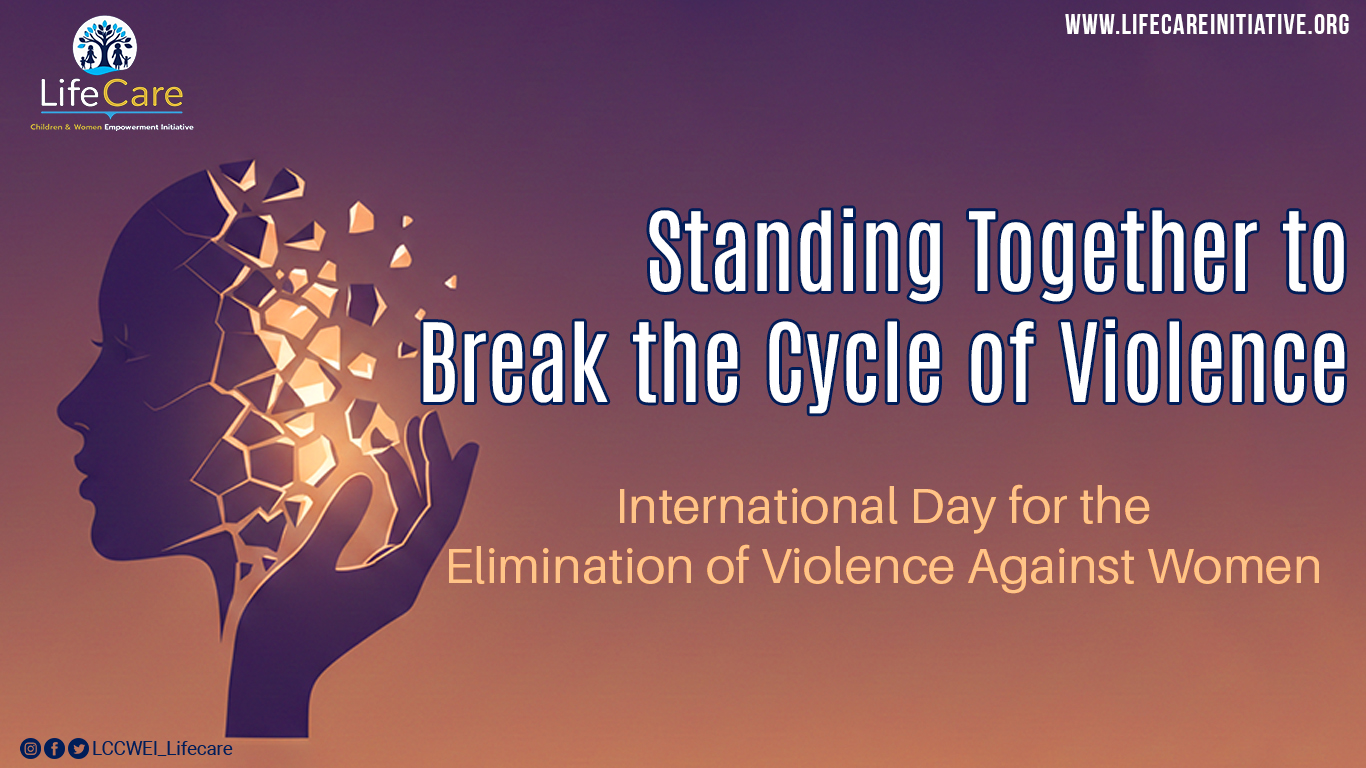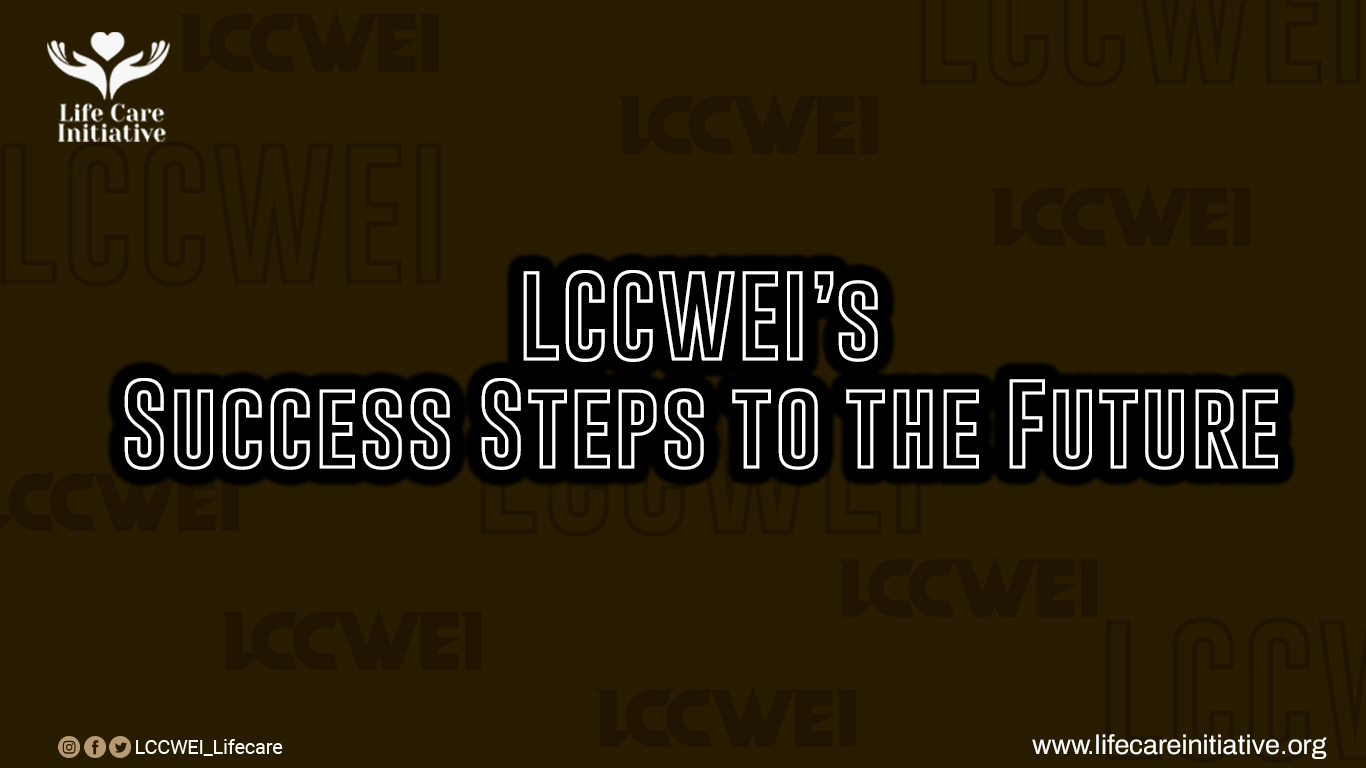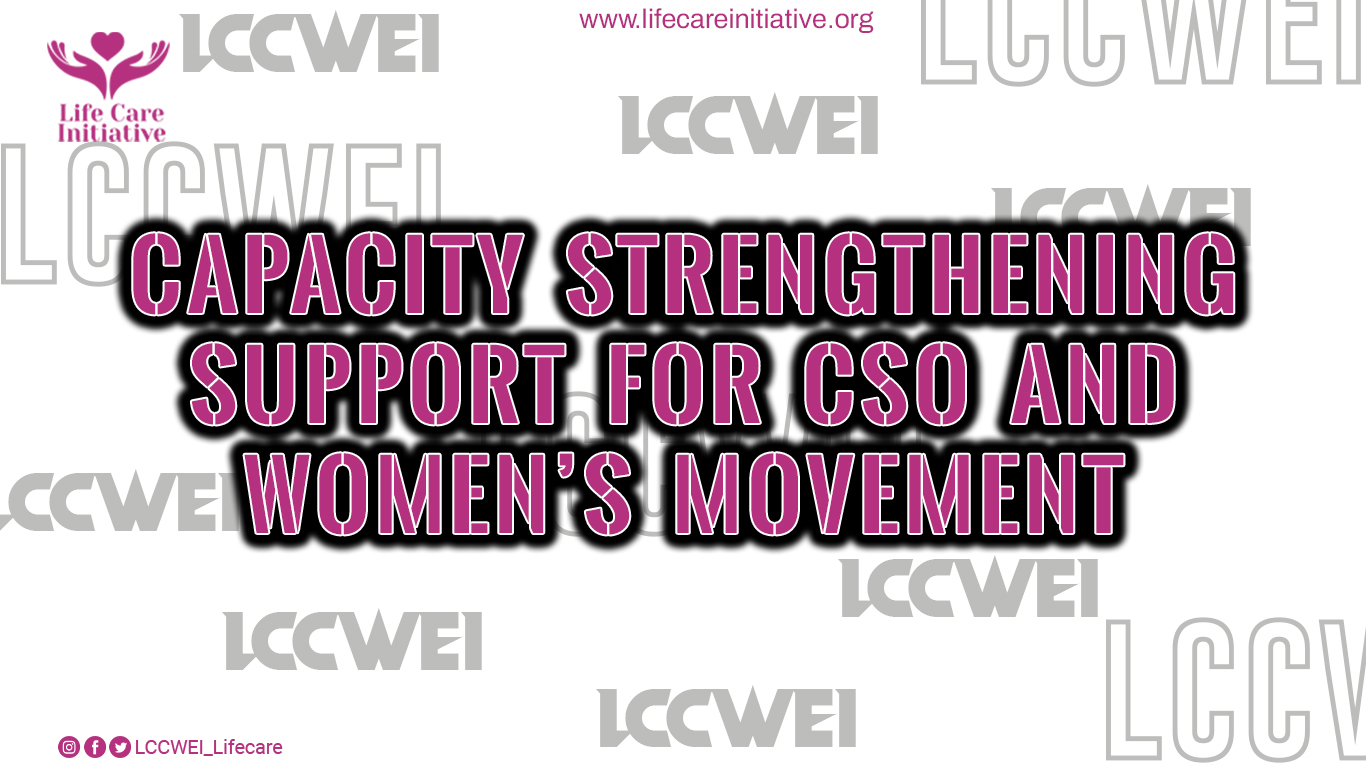International Day for the Elimination of Violence Against Women
Standing Together to Break the Cycle of Violence
Every year on November 25, the world pauses to observe the International Day for the Elimination of Violence Against Women—a day dedicated to raising awareness, inspiring action, and reaffirming our collective commitment to protect the rights, dignity, and wellbeing of women and girls everywhere.
Violence against women is not just a personal tragedy; it is a global human rights violation that affects families, communities, and the very fabric of our societies. It occurs in homes, workplaces, schools, and digital spaces. It manifests as physical abuse, psychological manipulation, sexual violence, economic deprivation, child marriage, harmful cultural practices, and more. Yet, despite its prevalence, it is often hidden—shrouded in silence, stigma, and fear.
At Lifecare Children & Women Empowerment Initiative (LCCWEI), we believe that every woman deserves a life free from violence. We stand with survivors, advocate for justice, and work to build a safer world for all.
Why November 25 Matters
This day marks the beginning of the 16 Days of Activism Against Gender-Based Violence, a global campaign that continues until December 10 (Human Rights Day). It is a reminder that eliminating violence is not the responsibility of women alone—it is the duty of communities, institutions, governments, and individuals alike.
November 25 encourages us to:
- Break the silence around abuse and harmful practices
- Support survivors with compassion, protection, and justice
- Promote policies that prevent violence and strengthen accountability
- Educate communities on gender equality and respect
- Amplify the voices of women and girls who have been silenced for too long
Understanding the Impact of Violence Against Women
Violence affects women of all ages and backgrounds. Its impact goes beyond physical injuries—it leaves emotional scars, destabilizes families, hampers education, destroys economic potential, and fuels generational cycles of trauma.
Some common forms of violence include:
- Domestic/intimate partner violence
- Sexual assault and harassment
- Trafficking and exploitation
- Child marriage and forced marriage
- Female genital mutilation (FGM)
- Economic and emotional abuse
- Online harassment and cyberbullying
The consequences are devastating, yet preventable.
LCCWEI’s Commitment to Ending Violence
As an organization focused on empowerment, protection, and advocacy, LCCWEI works tirelessly to:
1. Create Safe Spaces for Women and Girls
We offer emotional support, guidance, and referrals to help survivors access the protection and services they need.
2. Promote Education and Awareness
Through community seminars, school programs, and local partnerships, we raise awareness on gender rights, healthy relationships, and early reporting of abuse.
3. Empower Women Economically
Economic freedom is one of the strongest shields against abuse. Our skill-training programs help women become self-reliant and confident.
4. Advocate for Policy and Community Action
We engage local leaders, families, and youth to challenge harmful norms and push for stronger protections against gender-based violence.
5. Support Children Affected by Violence
We stand with children who witness or experience violence, ensuring they receive the care, protection, and hope they deserve.
Together, We Can End Violence
Ending violence against women begins with awareness, grows through education, and becomes reality through collective action.
Here is how YOU can make a difference:
- Speak up when you witness abuse—silence protects the abuser
- Educate your children and community about respect and equality
- Support survivors with empathy, not judgment
- Join advocacy initiatives and community outreach
- Partner with organizations like LCCWEI to amplify the message
On this November 25, let us reaffirm our commitment to a world where women and girls live free from fear. Let us stand together to break the silence, challenge harmful norms, and build a future rooted in dignity, equality, and justice.
Violence against women is not inevitable.
It can be prevented. It must be stopped. And it begins with all of us.





